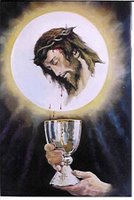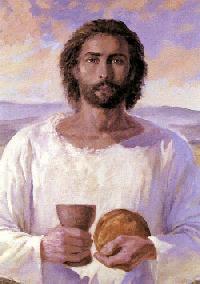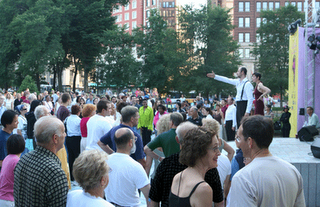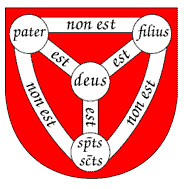Corpus Christi, observed
Today is the day on which the Catholic Church in the United States observes the feast of Corpus Christi. It is not the traditional day, which was last Thursday, but still, as an expression of the Church's faith, it is within the Church's powers to change when the day is celebrated. Moving the day from Thursday to Sunday, we lose some of the connection to Holy Thursday, but gain more worshippers for the Lord.
Last Thursday, Corpus Christi as traditionally observed, the American bishops very fittingly announced their approval of corrections to various mistranslations in the Mass. Since this was the day on which we particularly honor our Lord's True Presence in the Holy Eucharist, one might think that our bishops would have paid particular attention to the words of consecration. One would be mistaken. Fixing lesser errors, the good bishops left our Lord's (supposed) words in the consecration of the Precious Blood at variance from what He actually said. But it is not in the Church's power to change what He said!
From today's first reading:
Taking the book of the covenant, he read it aloud to the people, who answered, "All that the LORD has said, we will heed and do." Then he took the blood and sprinkled it on the people, saying, "This is the blood of the covenant that the LORD has made with you in accordance with all these words of His."
(Exodus 24:7-8)
From today's Gospel:
Then He took a cup, gave thanks, and gave it to them, and they all drank from it. He said to them, "This is My blood of the covenant, which will be shed for many."
(Mark 14:23-24)
A bright note at the meeting of the American bishops mentioned above was the address by the relatively new chairman of ICEL, the Right Reverend Arthur Roche. He spoke with the sensitivity to the sacred one hopes for from a man in his position:
...Another example is found in the Fourth Eucharistic Prayer in the phrase the fruit of the vine in the Institution Narrative. Currently we say he took the cup filled with wine, as you know, and some argue that the fruit of the vine means the same as the single word wine, and that the simpler expression should be preferred. But we hear the words the fruit of the vine on the lips of the Lord himself in all three synoptic Gospels – which I would consider as being more than enough reason to respect their form.
...The prayers of the Mass, including the anaphoras, are mainly inspired and formed from Sacred Scripture, and the Commission of ICEL has accepted one very important point found in Liturgiam authenticam and accepted it as being crucial, namely the significance of the language of Sacred Scripture in our translation of the Mass. One good example of this is the translation of the Domine non sum dignus as, Lord, I am not worthy that you should enter under my roof, with its reminiscence of the Centurion who asked Jesus to heal his servant.
The link between the Liturgy and Scripture, on which Liturgiam authenticam lays emphasis, seems so obvious, important and valuable. ...
I cannot help but think that what is being asked of us bishops today is no less vital than what was being asked of Paul when, in the face of the cacophonous Church at Corinth, he wrote:
For I received from the Lord what I also handed on to you, ...
Labels: calendar, Corpus Christi, Eucharist








